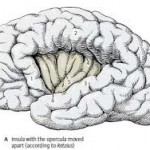What I’ve called self-trust in recent posts can be paraphrased as compassion. Compassion for oneself. In the last couple of weeks I’ve been exposed to the Buddhist perspective, which clearly sees compassion for others and compassion for oneself as two sides of the same coin. Compassion, or love, or trust, is considered a kind of natural state once all the cognitive cobwebs get cleared away. But how do you achieve it?
Meditation, of course.
So while I’m cruising the canals of the Netherlands, the next four days, with a great horde of relatives (my wife’s family), quite likely to tip over and sink, either physically or emotionally, or both, I’ll leave you with a description of a great little study by David DeSteno, a professor at Northeastern University. Here’s the link, but I’m pasting most of the article below to save you the trouble of clicking on it. (Now, that’s compassion.)
This article was brought to my attention by someone whom I’d love to acknowledge, except that I can’t remember who it was. Very embarrassing. If you’d like to step forward and receive due credit, then please do.
One more thought before you read the article. I’ve recently been perusing a lot of the literature on the neuroscience of meditation. The state of the art amounts to what’s usually known as a dog’s breakfast, not  to be confused with a god’s breakfast. It’s a mess of overlapping and sometimes discrepant findings. But there’s one bit of the brain that reliably lights up as a result of meditation training: a wee bit of cortex called the insula — a structure that is thought to mediate enteroception, the feelings one gets from one’s own body. When you are consciously feeling your feelings, whether sadness, anxiety, fatigue, or pain, it’s the insula that’s giving you the message. So, meditators seem to be able to switch on that conscious state of feeling more easily than controls.
to be confused with a god’s breakfast. It’s a mess of overlapping and sometimes discrepant findings. But there’s one bit of the brain that reliably lights up as a result of meditation training: a wee bit of cortex called the insula — a structure that is thought to mediate enteroception, the feelings one gets from one’s own body. When you are consciously feeling your feelings, whether sadness, anxiety, fatigue, or pain, it’s the insula that’s giving you the message. So, meditators seem to be able to switch on that conscious state of feeling more easily than controls.
 Maybe that’s no big surprise. But here’s the cool part: insula activation is a reliable correlate of empathy, induced through various experimental protocols, like looking at pictures of people who are suffering. In other words, you have to be able to feel your own feelings in order to feel empathy. Meditation seems to improve that ability. And given the results of the following study, that can translate into being good to others as well as good to yourself.
Maybe that’s no big surprise. But here’s the cool part: insula activation is a reliable correlate of empathy, induced through various experimental protocols, like looking at pictures of people who are suffering. In other words, you have to be able to feel your own feelings in order to feel empathy. Meditation seems to improve that ability. And given the results of the following study, that can translate into being good to others as well as good to yourself.
MEDITATION is fast becoming a fashionable tool for improving your mind. With mounting scientific evidence that the practice can enhance creativity, memory and scores on standardized intelligence tests, interest in its practical benefits is growing. A number of “mindfulness” training programs, like that developed by the engineer Chade-Meng Tan at Google, and conferences like Wisdom 2.0 for business and tech leaders, promise attendees insight into how meditation can be used to augment individual performance, leadership and productivity.
This is all well and good, but if you stop to think about it, there’s a bit of a disconnect between the (perfectly commendable) pursuit of these benefits and the purpose for which meditation was originally intended. Gaining competitive advantage on exams and increasing
creativity in business weren’t of the utmost concern to the Buddha and other early meditation teachers. As the Buddha himself said, “I teach one thing and one only: that is, suffering and the end of suffering.” For him, as for many modern spiritual leaders, the goal of meditation was as simple as that. The heightened focus on and insight into one’s own mind, offered by meditation, plus the enhanced cognitive skills of clarity and self-regulation, were supposed to help practitioners see the world in a new way — in which we are no longer the center of the universe. And that’s what allows for compassion — a genuine regard of other people and an intrinsic wish to end their suffering as well as our own. And a relaxation of the habitual categorizations (us/them, self/other) that commonly divide people from one another.
But does meditation work as promised? Is its originally intended effect — the reduction of suffering — empirically demonstrable?
To put the question to the test, my lab, led in this work by the psychologist Paul Condon, joined with the neuroscientist Gaëlle Desbordes and the Buddhist lama Willa Miller to conduct an experiment whose publication is forthcoming in the journal Psychological Science. We recruited 39 people from the Boston area who were willing to take part in an eight-week course on meditation (and who had never taken any such course before). We then randomly assigned 20 of them to take part in weekly meditation classes, which also required them to practice at home using guided recordings. The remaining 19 were told that they had been placed on a waiting list for a future course.
After the eight-week period of instruction, we invited the participants to the lab for an experiment that purported to examine their memory, attention and related cognitive abilities. But as you might anticipate, what actually interested us was whether those who had been meditating would exhibit greater compassion in the face of suffering. To find out, we staged a situation designed to test the participants’ behavior before they were aware that the experiment had begun.
WHEN a participant entered the waiting area for our lab, he (or she) found three chairs, two of which were already occupied. Naturally, he sat in the remaining chair. As he waited, a fourth person, using crutches and wearing a boot for a broken foot, entered the room and audibly sighed in pain as she leaned uncomfortably against a wall. The other two people in the room — who, like the woman on crutches, secretly worked for us — ignored the woman, thus confronting the participant with a moral quandary. Would he act compassionately, giving up his chair for her, or selfishly ignore her plight?
The results were striking. Although only 16 percent of the nonmeditators gave up their seats — an admittedly disheartening fact — the proportion rose to 50 percent among those who had meditated. This increase is impressive not solely because it occurred after only eight weeks of meditation, but also because it did so within the context of a situation known to inhibit considerate behavior: witnessing others ignoring a person in distress — what psychologists call the bystander effect — reduces the odds that any single individual will help. Nonetheless, the meditation increased the compassionate response threefold.
…recent findings by the neuroscientists Helen Weng, Richard Davidson and colleagues confirm that even relatively brief training in meditative techniques can alter neural functioning in brain areas associated with empathic understanding of others’ distress — areas whose responsiveness is also modulated by a person’s degree of felt associations with others. [see my comments on the insula!]
So take heart. The next time you meditate, know that you’re not just benefiting yourself, you’re also benefiting your neighbors, community members and as-yet-unknown strangers by increasing the odds that you’ll feel their pain when the time comes, and act to lessen it as well.

Leave a Reply to Nalliah Thayabharan Cancel reply